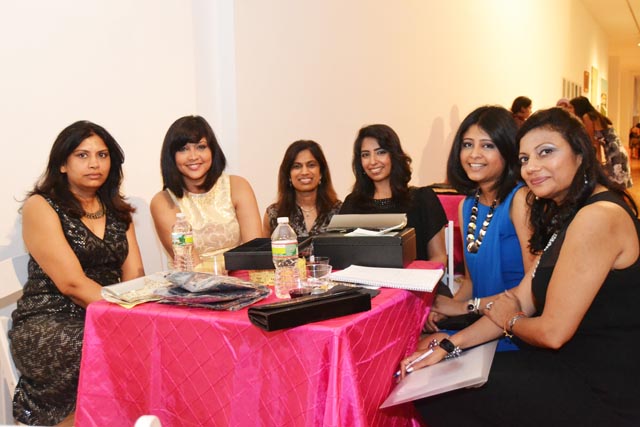
Wishwas – Women Helping Women
In a world of shut doors and glass ceilings, success in life is difficult to achieve, especially for low income women of color, with little education. Enter Wishwas, an organization that turns the homely skills of these women into assets and helps them to market their hand-made products.
Wishwas, a fledgling organization started by New Yorker Nivedita Chandrappa had its coming out party at the beautiful Queens Museum of Art in Flushing, Queens with a cocktail fundraiser showcasing the work of the women of Wishwas. It was indeed a gathering of women helping women, with over a hundred guests. The chief guests were designer Ranjana Khan, who donated several jewelry pieces for the art auction, and had flown in especially for the event. Noted celebrity chef Maneet Chauhan who currently is a judge on the food TV show Chopped, also spoke animatedly about the cause of women:
The event raised funds and awareness – which is half the battle won. If you’d like to volunteer or support the cause of South Asian women, check out wishwas.org
5 Questions for Nivedita Chandrappa of Wishwas
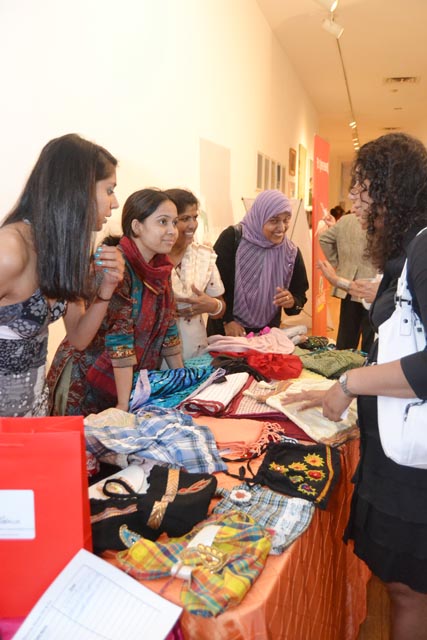
1. Why did you decide to start Wishwas?
Wishwas the result of many years of volunteer work at women’s organizations around the city. I felt that though many women’s organizations do amazing work with domestic violence , one cannot identify and label the cause of such in one word, it has many layers and many implications.
I felt the South Asian community is not supportive of the work these women’s organizations are doing because there is a huge gap of understanding the cultural perspectives of what women are expected to do as home-makers and how that changes in this country. Why isn’t there a system within our communities to meet and support these issues?.
The South Asian communities suffer from many sort of stigmas, whether it is mental health or divorce – mostly the people who are suffering are supposed to get help secretly and alienated from the communities, which is a miserable aspect of our society.
I felt the need to recreate the support system to suit every woman who comes new to this country, every family that can access help to learn the ropes of this country. I hope Wishwas will create a better community by involving the community with its work.
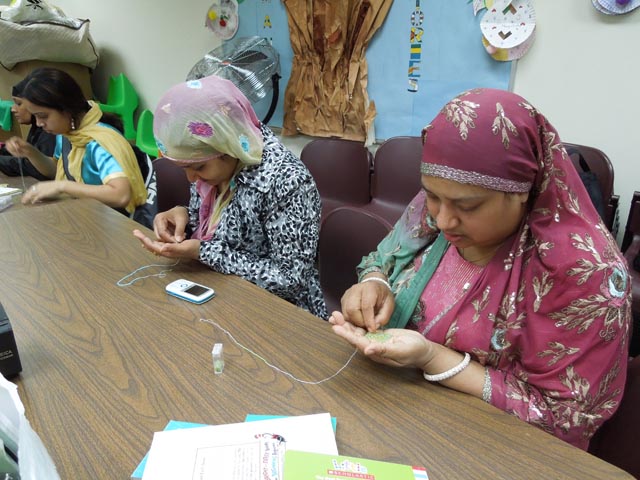
.
2. Who are the women being helped? What are the programs that you have for low income women?
We serve women from all walks, mostly low-income women in the South Asian community. These women have no access to day-care so, mostly they are at home with kids. We assess their interest and give them what they require.
Most of the time they know sewing and crafts and would like to learn better sewing so that they can sew clothes for themselves and others. We fine-tune their skills, teach them design and quality. We also teach them jewelry making, crafts that they can easily market. We also try to find market for their products but usually that takes anywhere up to a year, since the outside vendors are looking for fine finish and excellent quality. I hope eventually women will get to that stage.
Once women are able to fine-tune their skills, we will help them create cooperatives where together they can make unique products, create a brand and own a store or place products at high-end stores, We also provide them nutrition and health workshops.
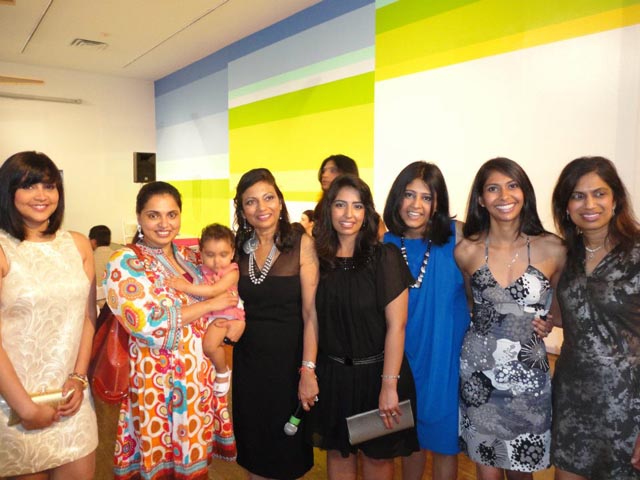
3. Tell us about the collaborations and grants that you have got?
We are trying to collaborate with Global Goods Partners and Handicrafts for Justice for product placements, and there are other partnerships that are being talked about. The grants we got were from Saywe.org, Childrenshopeindia.org, and Citizen’s Committee of New York.
4. What are the success stories that you’d like to tell us about?
The success stories are many, they say Wishwas has given them the opportunity to grow and learn. Our women have now started talking to everyone, know how to wish and how to negotiate, how to make extra income with the skills they already have.
I think each story is unique and personal – on the whole they are a happy bunch who work together, spend time together on a weekly bases, have bonded together, and they also do that while their children are safe around them.
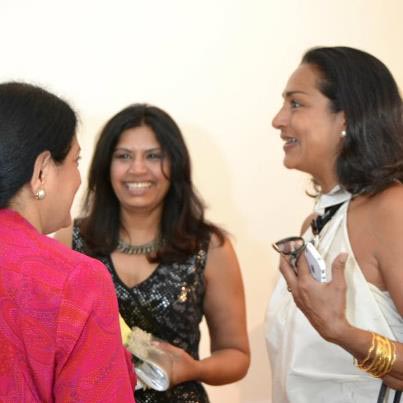
5. What’s been the most rewarding thing about Wishwas for the women concerned – and for you?
The most rewarding experience has been that these women are really being helped hands-on, They are not just numbers in a not-for-profit, they are asked what their aspirations and goals are.
We also work as a support group between women of various walks: women who come here on H4 visa cannot legally work, so such women come to us for volunteering, and they also hone their skills in marketing, design, administration or communication, which gives them a release from everyday isolation. So it rewarding to see them transform in every little way, it is empowering to see our own growth as women.
Personally it has been an immensely rewarding experience to grow with them, to understand their needs as human beings who are nurtured to their full potential.
